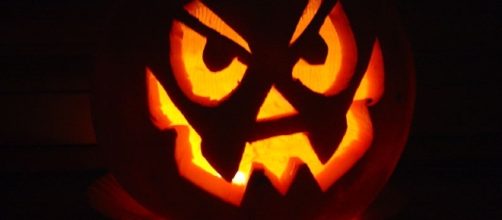Halloween is a holiday celebrated by children all over the world. They dress up as their favorite superhero, princess, or ghoulish figure and take to the streets, stalking through the shadows from one house to the next. Ever in character, they make their way through the narrow sidewalks littered with draped spiderwebs and plastic tombstones to the dimly lit porches and front doors of their neighbors. They ring the door bell with grins widened by the anticipation of of making that favorite Halloween exclamation, "Trick or treat!"
While the children may love the holiday, and don't ever seem to question something that brings so much fun (and candy), it's easy to wonder about the origins of Halloween.
Let's explore some of the history and lore behind the spooktacular holiday.
Halloween is said to have its origins in Paganism
According to history.com, Halloween is thought to have originated with the Celts, a people who lived over 2,000 years ago, mostly in the areas now known as the United Kingdom and Ireland. Each year, the Celts would hold a festival called Samhain (pronounced SOW-in) to mark the transition from the lighter, warmer part of the year into the dark, cold winter. The Celts believed that with this transition came a blurring of the lines between the world of the living and the world of the dead, thus allowing the dead to again walk the earth.
Dressing up and going "trick or treating" is a modern take on an ancient tradition
According to a story on usatoday.com, dressing up and going door to door looking for treats is a tradition that dates back to the Celts as well. They believed that the spirits of the dead that were thought to walk the earth could be mischievous and play tricks on the living.
To thwart the insidious dead, the living would dress up in ghoulish costumes to blend in with them, and leave offerings of food to placate them. Over time, that tradition slowly morphed into modern day Trick Or Treating.
The Romans replaced the Celtic festival of Samhain with a more Christian celebration
An article on history.com describes how, even after the Romans had conquered the Celts, many of the Celtish traditions lived on.
The festival of Samhain was widely celebrated, but The Romans didn't like the idea of people celebrating a Pagan festival. The Romans combined their festivals of Feralia, meant to commemorate the passing of the dead, and their festival to honor Pomona, goddess of fruit and trees with the Celt's Samhain. Eventually, these festivals became collectively celebrated as All Saints Day, and the night before was known as All-hallows Eve and later, Halloween.
This October 31st, as you set out to celebrate Halloween in your own way, remember where it is said to have begun. The shadows that crawl long against the sidewalks may hold more than you realize, they may hold within them the spirits of the dead, come back to walk the earth for one more night.


